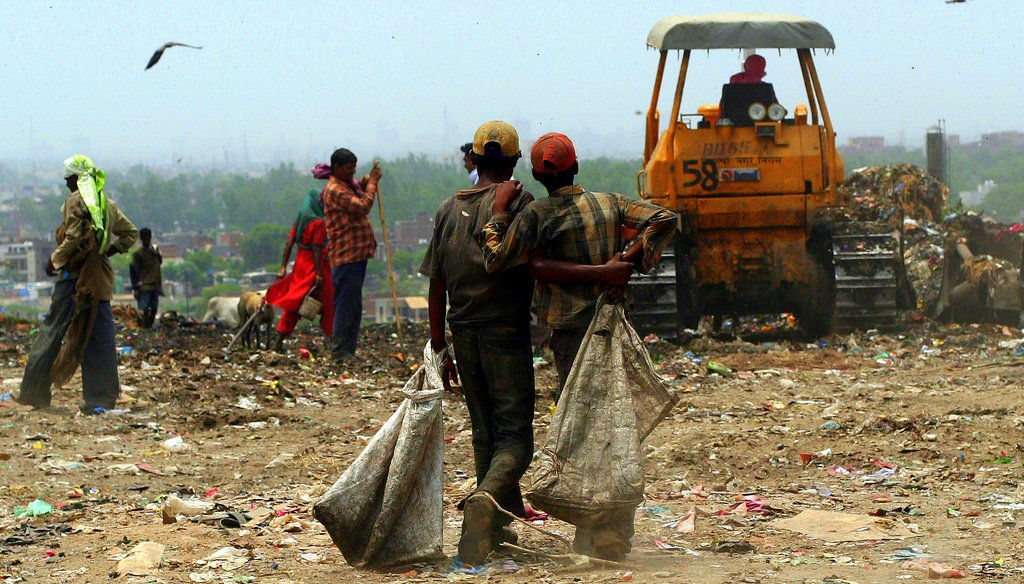
Young waste pickers at Ghazipur. Photograph: mackenzienicole
In the West, we recycle because we know that doing so is essential for conserving our planet’s resources. However, for some of the poorest people in the developing world, recycling often isn’t a choice, but a necessity of life.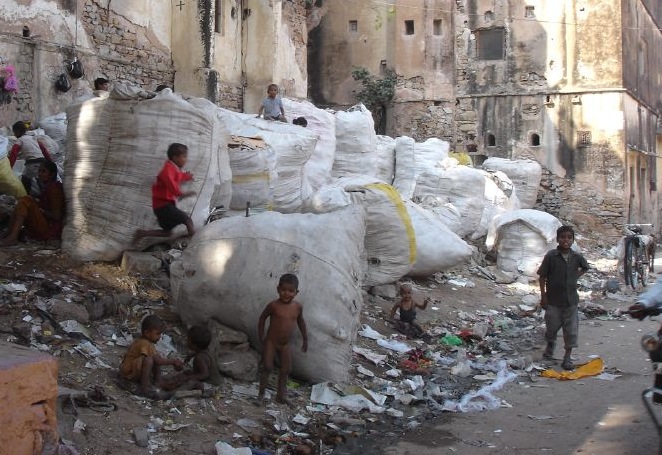
Photograph: dlisbona
In India, the people who make their living by recycling waste are known as ragpickers. In New Delhi alone, there are 300,000 ragpickers, with another 300,000 in Mumbai, of whom 120,000 are under the age of 14.
Critically endangered Greater Adjutant Storks at a landfill near the city of Guwahati, India. Photograph: Sandesh Kadur/felis.in
Many of these children, some of whom are as young as 5, work from the early hours of the morning until late in the evening every day in order to be able to collect enough waste for them to allow them to survive.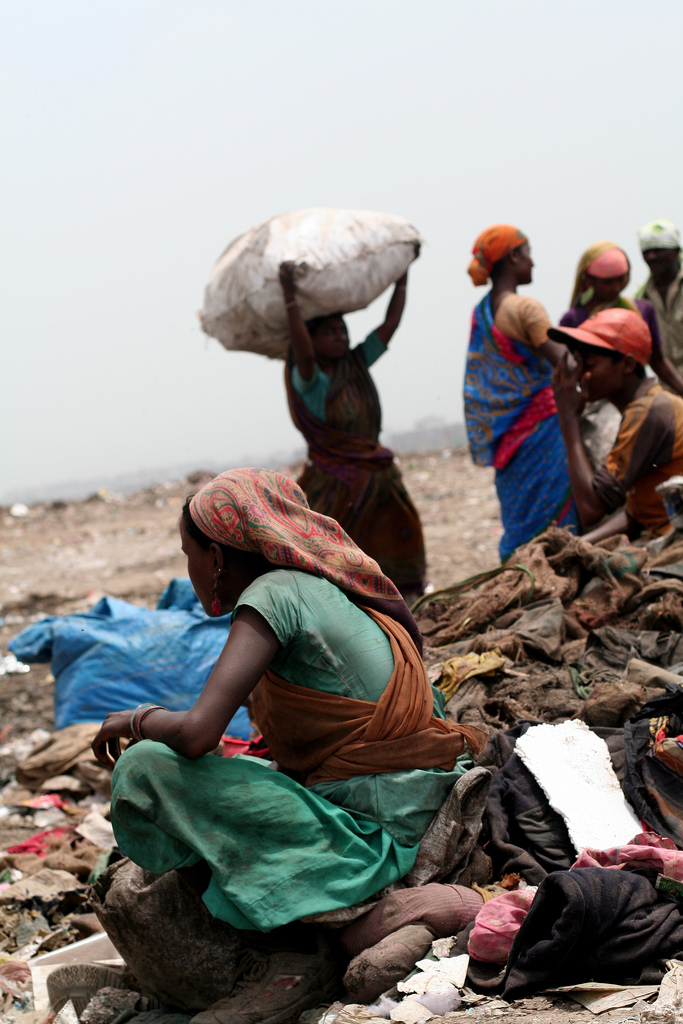
At Ghazipur dump. Photograph: mackenzienicole
Most of the ragpickers are rural immigrants who arrive in India’s mega cities with the hope of finding a job. Unable to find employment, and perhaps unable to speak the local language, they eventually turn to picking rags, collecting recyclable materials dumped by India’s burgeoning middle class, in order to support a meager living on the margins of society. While a great deal might be abandoned in this world, little is wasted — everything has a value to someone here.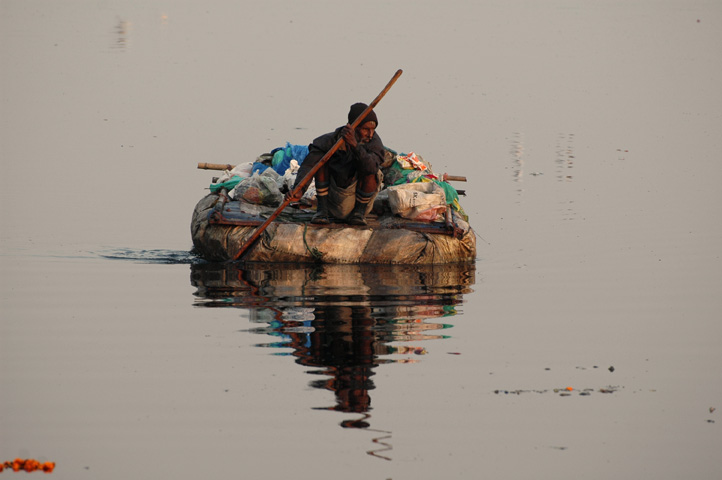
A ragpicker on the Yamuna River. Photograph: Koshyk
The people picking through the waste come in several types: there are those who go door to door, collecting and disposing of waste from individual homes; there are the street children who collect waste left in the road; and there are whole families who make their living by sifting through urban dumps to reclaim garbage.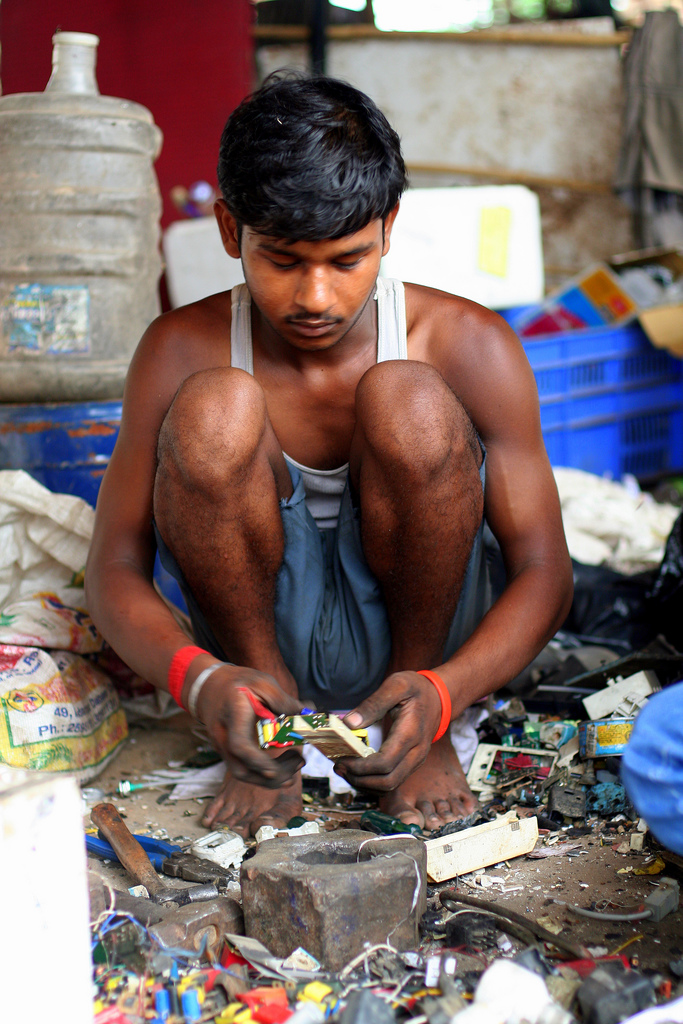
A man removes metal from circuit boards in a workshop. Photograph: mackenzienicole
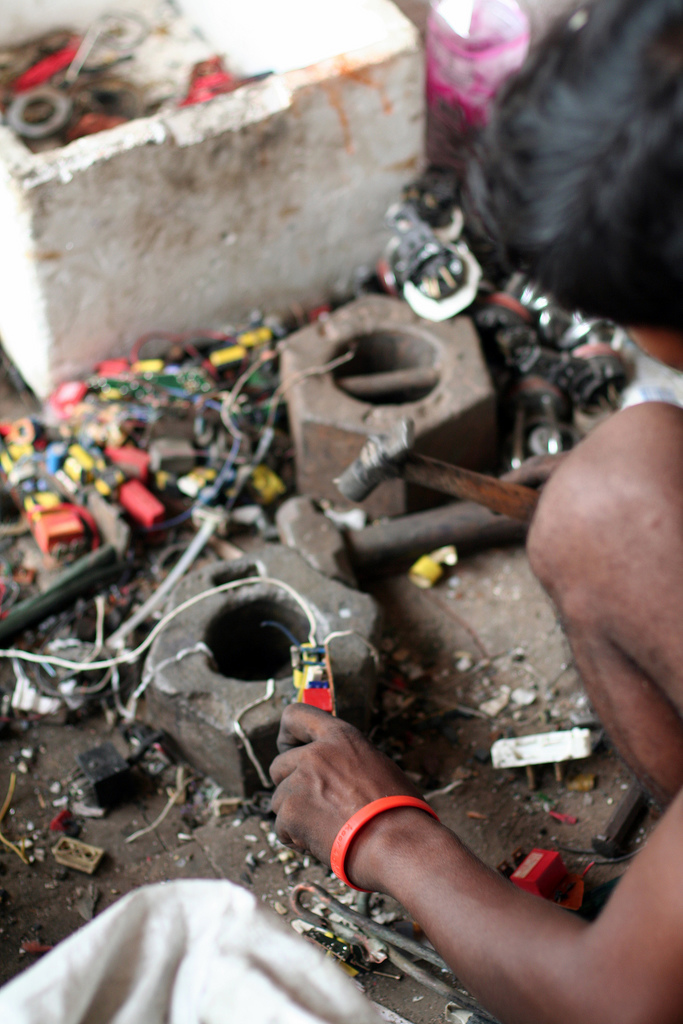
Photograph: mackenzienicole
The ragpickers primarily collect easily recyclable materials such as glass, metal and plastic, which can be sold to scrap dealers, who then process the waste and sell it on, either to be recycled or to be used directly in industry. A particularly sought-after commodity comes in the form of disposable plastic tea cups, which can be sold for 8 rupees a kilo — or for around 15 cents. A salary of $1 a day is normal.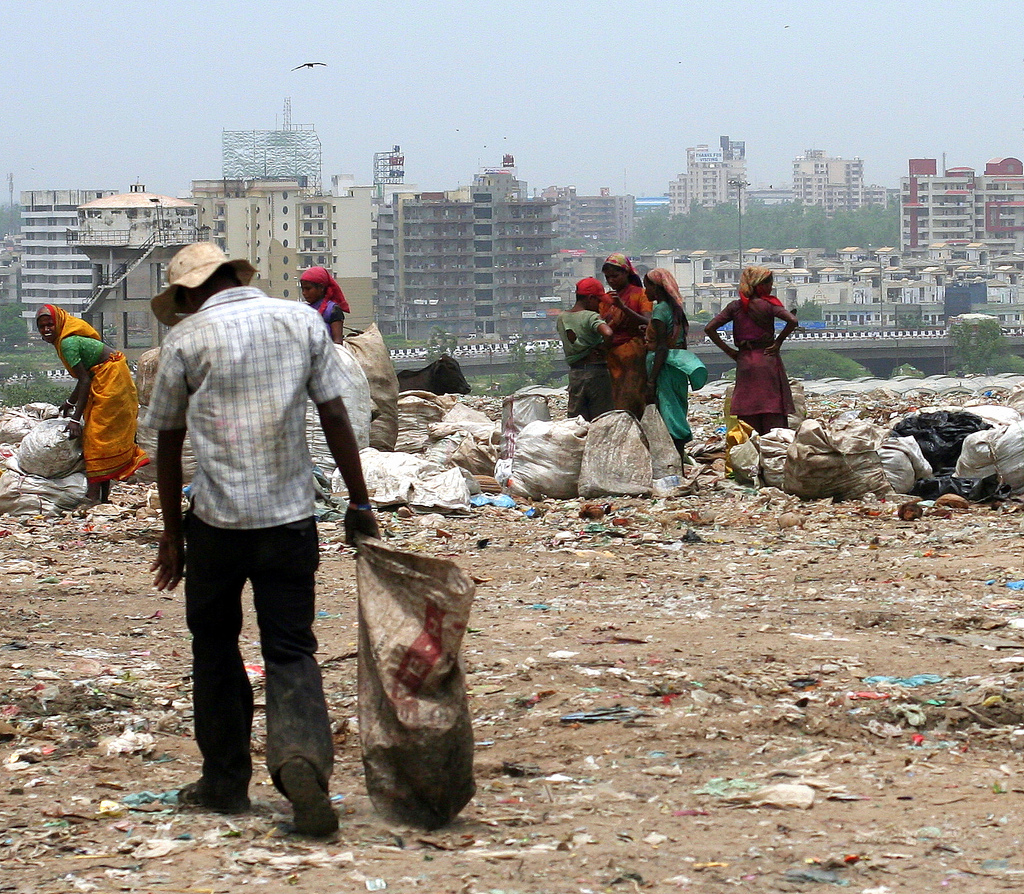
Overlooking Delhi from Ghazipur. Photograph: mackenzienicole
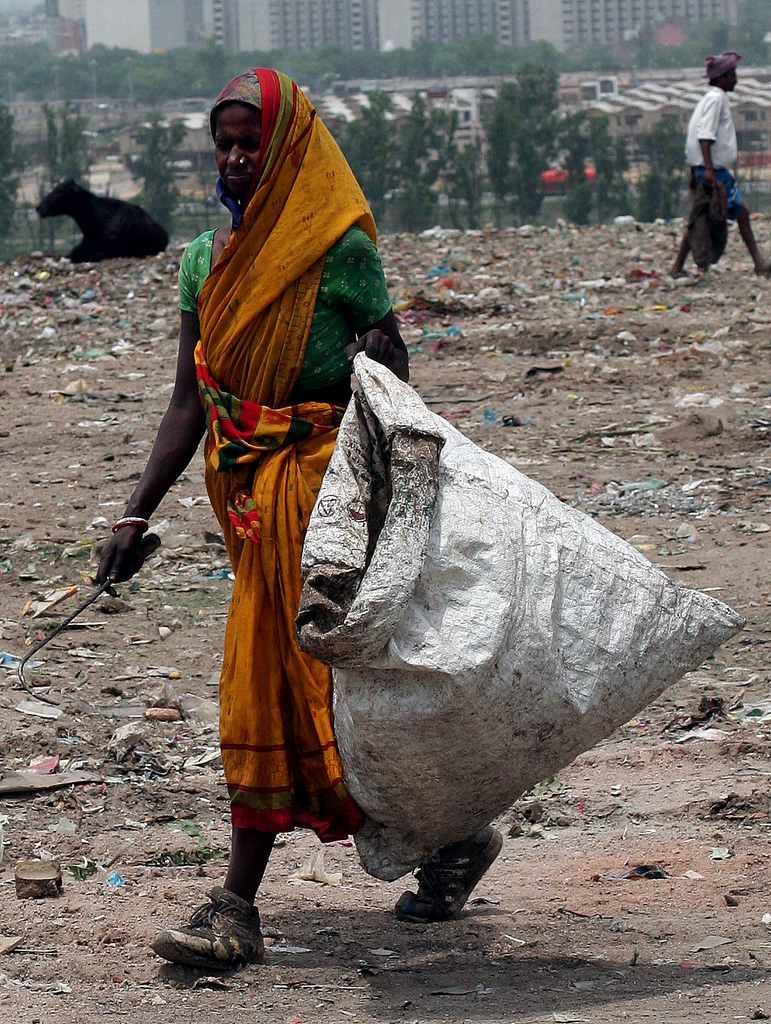
Ghazipur. Photograph: mackenzienicole
While some of the children who collect trash from the street manage to attend school, many simply do not have the time to do so, meaning that they lack even basic schooling and are entirely illiterate. It is a dangerous world for those who have been separated from their families.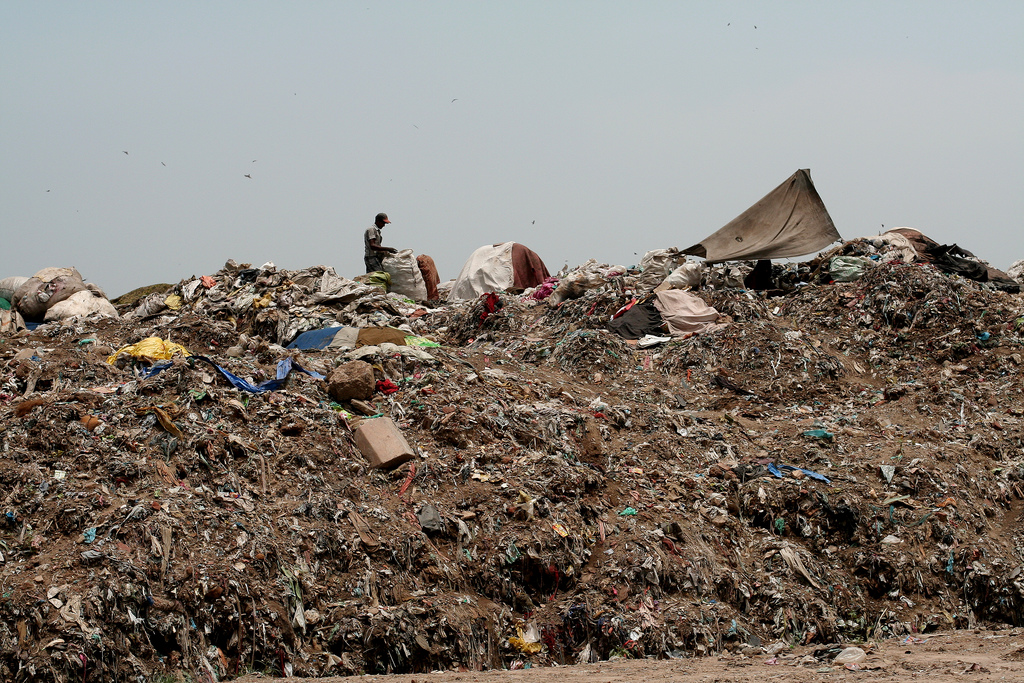
A New Delhi landfill. Photograph: mackenzienicole
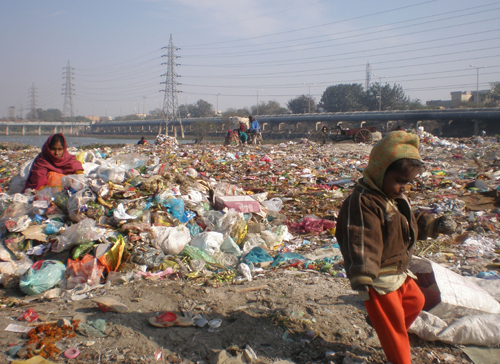
Photograph: delhigreens.com
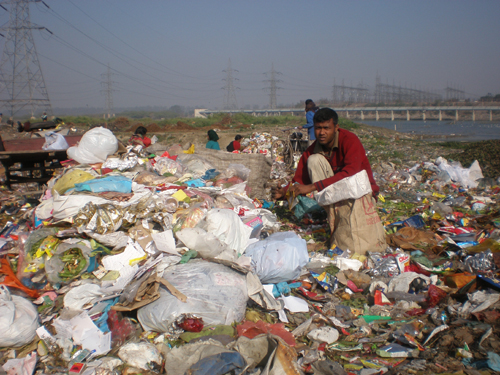
Photograph: delhigreens.com
Extraordinarily, India has no municipal waste management policy and no program of recycling, which means that the work that the ragpickers do is indispensable. Without them, garbage would not be collected or recycled, let alone sorted. Where companies do collect waste, they fill up landfills until they are full and then sell the land for residential development.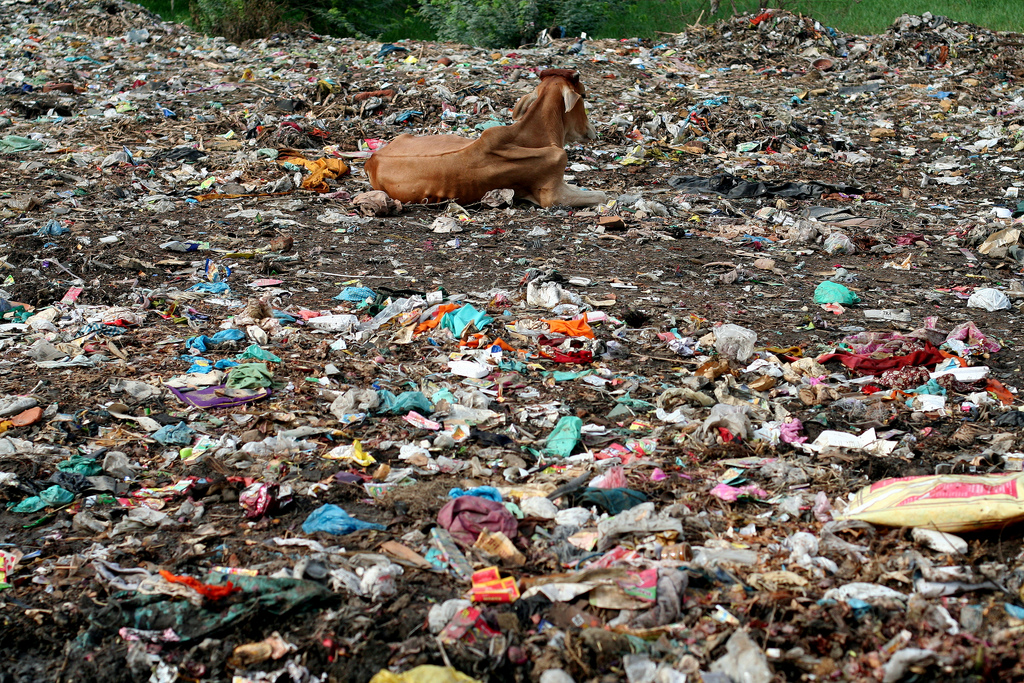
Photograph: mackenzienicole
In fact, Mumbai itself is built on a landfill, which has connected what was once a group of islands into a single connected landmass.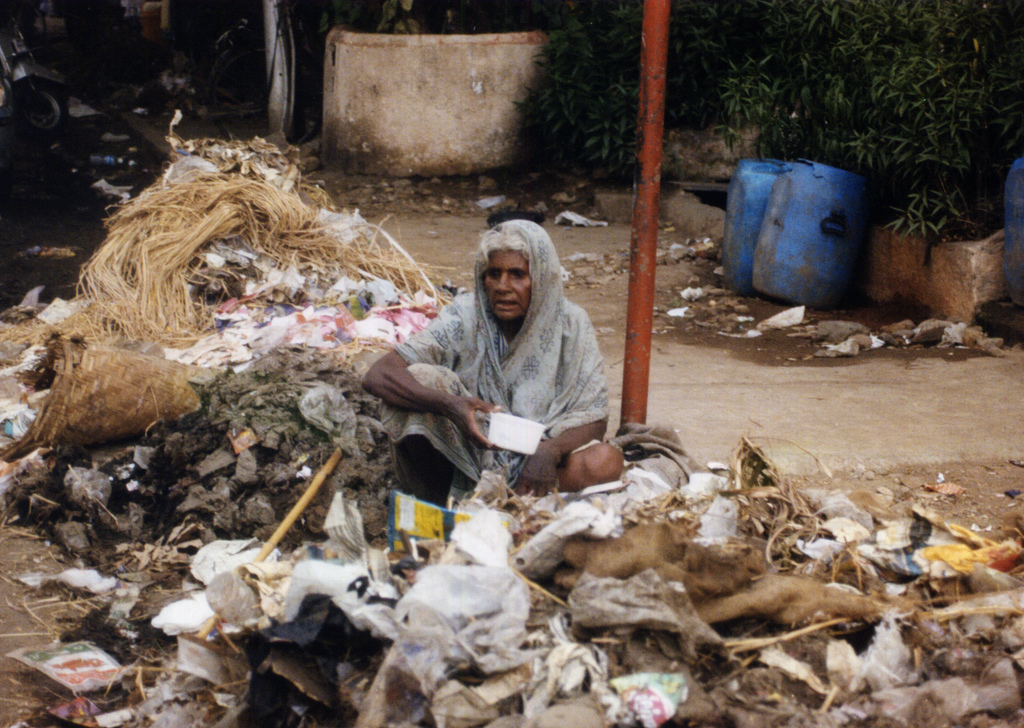
Mumbai ragpicker. Photograph by Mumbaivasi
Despite all this, the industry is unregulated and the authorities tend to treat the ragpickers as if they have no legal rights. Children are officially banned from working in waste collection, though, aside from routine harassment by the police, the authorities tend to turn a blind eye to them. Instead, the collectors must go without political representation or access to the most basic of municipal services.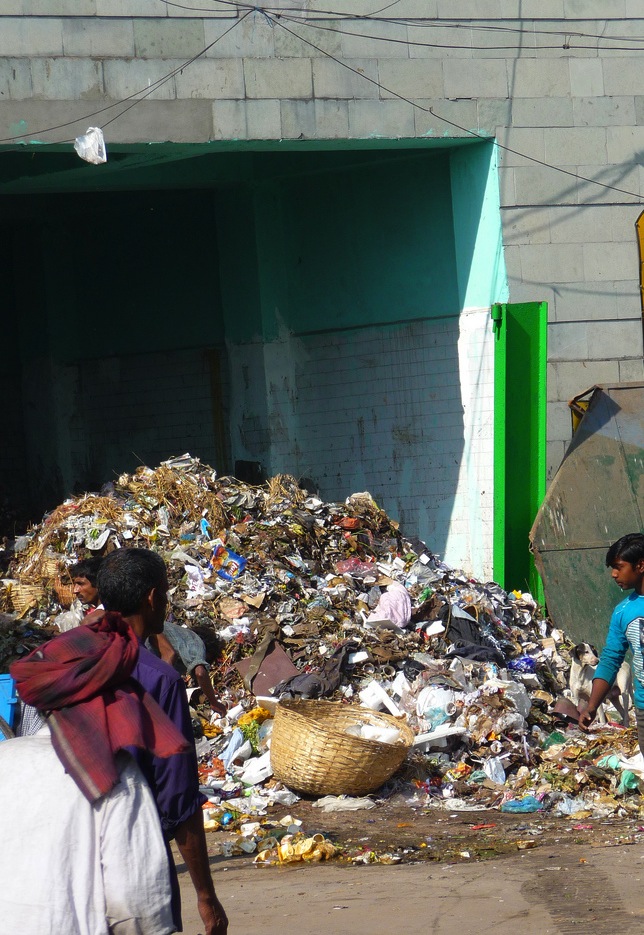
A heap of trash in a Delhi street. Photograph: say.wikki
As well as working in decaying garbage, barefoot and without gloves, in temperatures that can reach 110º F, the waste collectors are often exposed to medical and chemical waste and to noxious fumes. It is common for them to burn circuit boards to extract copper, thereby exposing themselves to toxic smoke. Because of the desperate and filthy conditions that they live and work in, it is common for the ragpickers to develop worms, anemia and respiratory problems, as well as a host of other illnesses.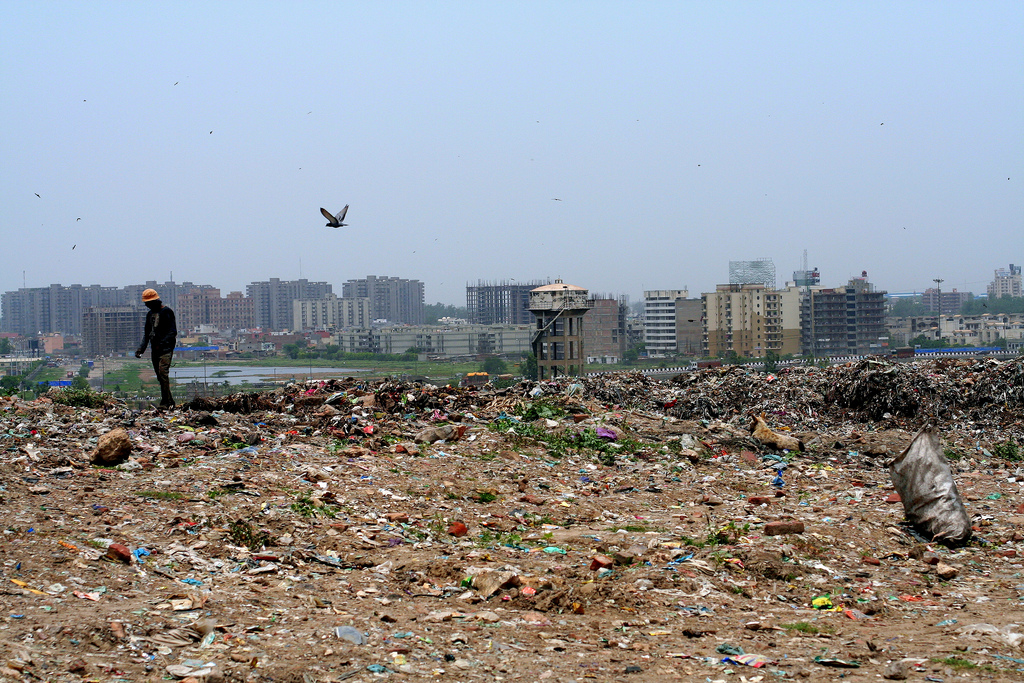
Trash at Ghazipur. Photograph: mackenzienicole
With an accelerating consumer culture, waste is on the increase in India, ensuring that the ragpickers’ thankless task will become even more essential for the country in the future. However, the signs are few and far between that the authorities will either recognize or repay them any time soon. In the meantime, they must struggle on, surviving on the crumbs left behind by India’s boom. Sources: 1, 2, 3, 4